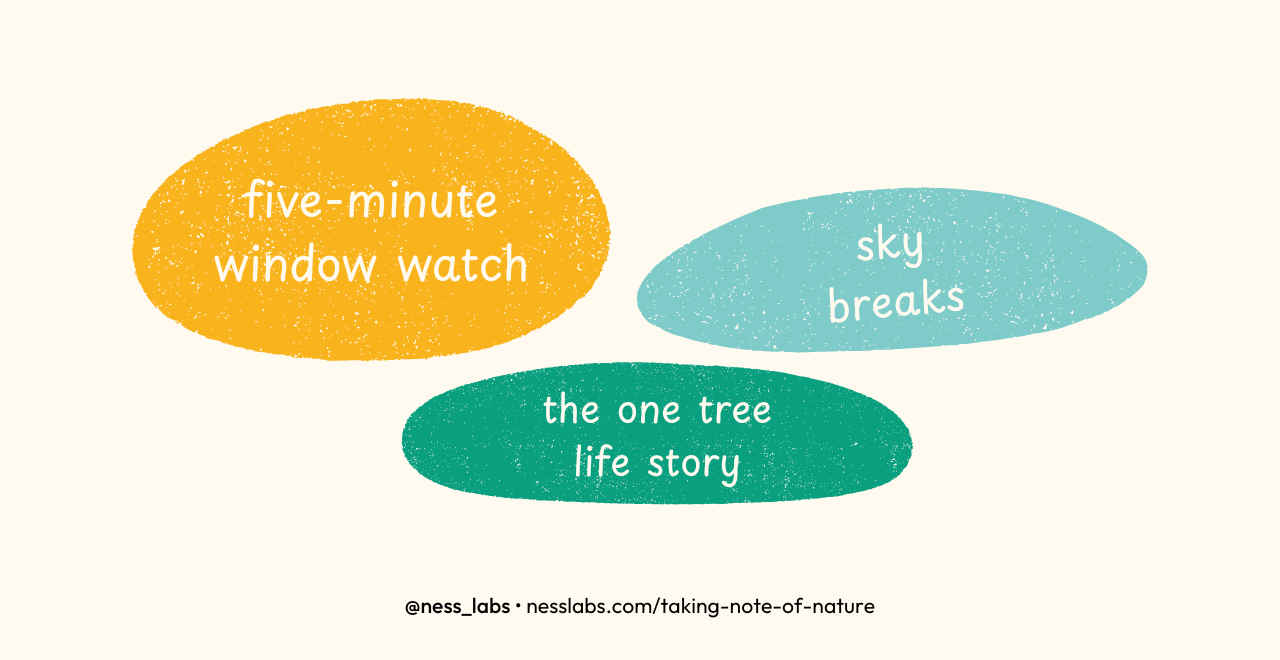It’s spring, and once again we’re being bombarded with advice about spending time in nature. Yes, there are many studies showing the positive impact immersion in nature can have on your mental health. For example, research shows that walking for 90 minutes in a natural setting will lower the activity in your prefrontal cortex, a brain region that is active during rumination.
But this well-meaning advice it’s not always practical. Not everyone has easy access to parks or forests – some of us live in cities, work long hours indoors, have mobility challenges, or can’t afford weekend getaways. How can we go about getting these benefits when living in an urban environment?
The Science of Everyday Nature Connection
A great way to manage your mental health is to learn how to “move outside of yourself.” This is when you focus on simply being present in the moment, as opposed to projecting yourself into the future or ruminating about the past. Some of the most effective methods to reach this state of grounded awareness are meditation and mindfulness practices.
Being immersed in nature is another way to reach this state. But not everyone lives in an area where this is possible or can afford to regularly travel to the countryside. Most people reading this will actually be living in a medium to big city.
This is why the research paper I’m going to tell you about made me so happy. In this two-week study, the researchers divided people into three groups:
- Nature
- Human-built
- Business-as-usual
While the “business-as-usual” group just went on their daily lives without any particular instructions, participants in the “nature” and “human-built” groups were asked to pay attention to how natural or human-built objects in their everyday surroundings made them feel, take a photo of the objects or scenes that evoked emotion in them, and to provide a description of emotions evoked.
As you may have guessed, the participants in the “nature” group showcased significantly higher levels of happiness, defined by their sense of elevation and how connected to other people they felt.
But what makes this study so interesting is the definition of “nature” the researchers used. This could be anything that was not human-made: a houseplant, a bird, a dandelion growing in a crack in a sidewalk, or even just sun through a window.
“This wasn’t about spending hours outdoors or going for long walks in the wilderness. This is about the tree at a bus stop in the middle of a city and the positive effect that one tree can have on people,” explained positive psychology researcher Holli-Anne Passmore.
This study is fascinating because it’s so applicable to our daily lives. It shows that it’s all about being proactive with our mindfulness and designing your own positive emotions. So, next time you take a walk in the city, take a few minutes to look up at the trees, the birds, or the flowers on the windows.
Tiny Experiments with Urban Nature
You don’t need to wait for your next vacation to connect with nature. Here are some tiny experiments you can try this week:
- Do a five-minute window watch. Spend just five minutes looking out your window and count how many natural elements you can spot. Birds, clouds, distant trees, or even the changing light all count.
- Follow one tree: Choose a single tree on your commute and observe it throughout the seasons. Take a quick photo every week to document its changes.
- Take sky breaks: Instead of a coffee break, take a “sky break” – step outside for two minutes and look up. Notice the clouds, birds, or simply the color of the sky.
Each of these tiny experiments takes minutes, costs nothing, and can be done in even the most urban environments. You can create a simple “I will [action] for [duration]” pact with one of those three simple actions and a short duration of five days up to a couple of weeks.
What tiny experiment will you try this week to find nature in your everyday surroundings?

